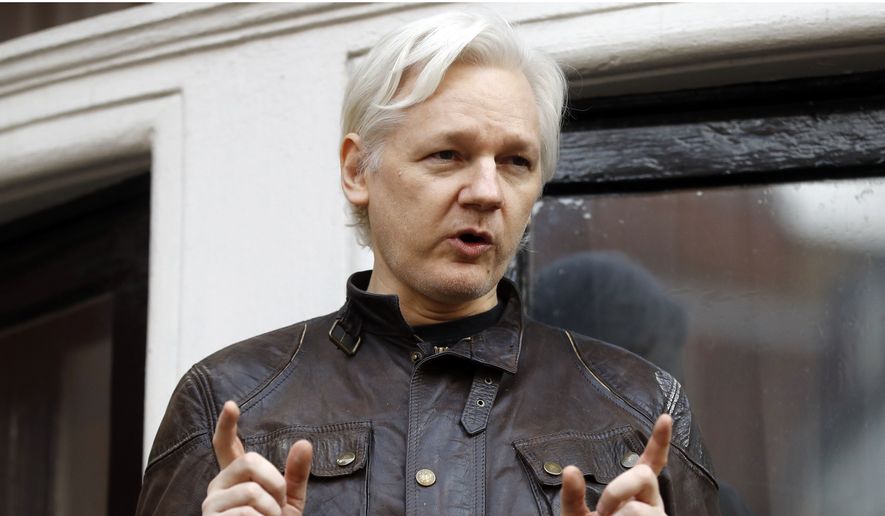Ecuador’s foreign minister has blamed Britain over the stalemate surrounding WikiLeaks publisher Julian Assange following rekindled attempts to secure his safe exit from Quito’s embassy in London.
“On the issue of mediation, I have to say very honestly that it has not been successful because two parties are needed to mediate,” Maria Fernanda Espinosa, the Ecuadorian foreign minister, told reporters Friday with respect to the Assange case, Agence France-Presse translated.
“Ecuador is willing but the other party is not,” she added, referring to Britain, according to Reuters.
Mr. Assange, 46, entered the Ecuadorian Embassy in 2012 in lieu of being questioned in Sweden by federal prosecutors pursuing a rape case. Stockholm dropped its investigation in 2017, but a London judge last week upheld a British warrant for his arrest.
British authorities argue that Mr. Assange, an Australian, was under house arrest when he entered the embassy and should be apprehended for having breached his bail conditions if and when he exits. Mr. Assange has voiced concerns with leaving, however, and he previously said he fears that exiting the embassy would lend to him being extradited to the United States and charged in connection with his WikiLeaks website and its publication of classified U.S. documents dating back to 2010.
Ecuador’s foreign minister said Quito shares Mr. Assange’s concerns about extradition and will continue to offer protection, Reuters reported.
Mr. Assange did not immediately return a message seeking comment.
Nearly six years since entering its embassy, Ecuador recently ramped-up efforts to secure Mr. Assange’s exit, including naturalizing him late last year after London refused Quito’s request to grant him diplomatic status.
“Ecuador knows that the way to resolve this issue is for Julian Assange to leave the embassy to face justice,” the U.K. Foreign and Commonwealth Office said after denying the request.
A Westminster Magistrates’ Court judge ruled last week that it remains in the public interest to pursue legal action against Mr. Assange for breaching bail. The WikiLeaks chief said at the time that he had three months to appeal.
The Obama administration began investigating WikiLeaks in 2010 after the website began publishing classified U.S. State and Defense Department documents, and a U.S. government official told Reuters last week that federal prosecutors were still pursuing a potential charges. President Trump’s attorney general, Jeff Sessions, previously called arrested Mr. Assange a “priority.”
• Andrew Blake can be reached at ablake@washingtontimes.com.




Please read our comment policy before commenting.